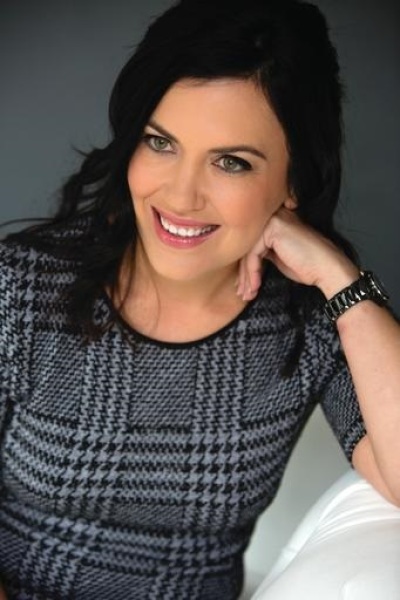Meet a Real Spy: Michele Rigby Assad Says Women Make the Best Undercover Agents

Never in a million years would I have imagined working for the CIA as an undercover spy. Far from being a rough-and-tumble child, I was a dimply little girl pirouetting around the house in my ballet shoes or choreographing dance routines for my high school cheerleading squad. I wanted to be a Rockette or pediatrician. But God had other plans for me.
What he had in store I could not conceive, but this strange path would eventually take me to more than 45 countries, specializing in counterterrorism, counterintelligence, and the Arab world. I have to admit, when I first started my job at the CIA, I didn't know whether I had what it took to be an intelligence officer. Because this was so far outside the scope of my experience, I had no idea what I was capable of.
On top of that, human resources staff and operational leadership repeatedly told me that as a female, I would be less effective in the field. After all, we weren't dealing with Boy Scouts but terrorists driven by radical, hateful ideology. The sources we met with to obtain terrorism-related intelligence weren't exactly fans of Western women. Overcome with intimidation and doubt, I struggled to figure out how I could contribute to the CIA's mission when my appearance and personality were so different from that of my colleagues.
When I finally made it into the debriefing room to work with terrorist sources, I was shocked:
I discovered that not only was I good enough, but I was uniquely qualified and well suited to handle terrorist sources.
The element of surprise can be helpful in espionage. Because I didn't fit the mold of a "typical" officer, my capabilities and intellect were often underestimated. I decided not to let this be a stumbling block, but instead to use it to my advantage. In some cases, it was useful to allow a bad guy to believe I was not very sharp—particularly when we suspected the source might be fabricating information or working as a double agent. In other cases, because I was different, sources didn't relax or settle into a working relationship with me because I made them nervous, or because I was an aberration. (In many of the cultures I served in, unrelated men and women are not permitted to interact in such settings—therefore, they didn't really know how to deal with me.) Once I demonstrated my expertise and showcased my professionalism and intelligence, they were motivated to work extra hard to answer my questions and fulfill my requests for better intelligence.
What makes us different enables us to shine. My keen ability to connect with other human beings made it possible for me to excel in operations. Like many women, I am a quick assessor of people and personalities. This enabled me to determine a source's strengths, weaknesses, motivations, and hang-ups in the first few minutes of a meeting. I could alter my language and nonverbal behavior to make them feel comfortable, understood, appreciated, and safe. This enabled me to gather more intelligence than they had planned on sharing. Being different can be a game changer.
Beware a woman's intuition. The first time that I recall having an intuition about a case, I wrestled with it. I could not understand why I felt so conflicted over a case that had gotten high praise from a number of officers. It took many restless nights and loads of mental anguish to untangle what my subconscious had figured out in mere seconds: The source who claimed to be an al-Qa'ida amir was not who he claimed to be. He was a fabricator. His behavior in the meeting I attended was different from the other terrorist sources I'd interacted with. He lacked the oversize ego and the swagger of a truly bad guy. Had I not honored my intuition, and indeed wrestled with it, I would not have discovered the source was lying to us. When you obtain bad intelligence and then pass it to military forces to "action," you put lives at risk on the battlefield. That is not okay. This case served as a turning point in my career as I finally realized that intuition—which women have in spades—was critical to my job as an intelligence officer.
People still find it hard to believe that I served in the CIA because I just don't fit the profile. Because of this, I like to use my life as an example of how God is creative. He puts us in places where our uniqueness can be applied in ways we never imagined. Never apologize for who you are. What makes you different will help you stand out and eventually shine. As the old adage goes, "God doesn't make no mistakes."
Michele Rigby Assad is a former undercover officer in the National Clandestine Service of the US Central Intelligence Agency. Trained as a counterterrorism specialist, Michele served her country for 10 years, working in Iraq and other secret Middle Eastern locations. Upon retirement from active service, Michele and her husband, Joseph (also a former agent), began leading teams to aid Christian refugees, including a rescue mission to Iraq that was featured on ABC's 20/20. Michele holds a master's degree in contemporary Arab studies from Georgetown University. Today she serves as an international management consultant, splitting her time between the Middle East, Florida, and Washington, DC.



























